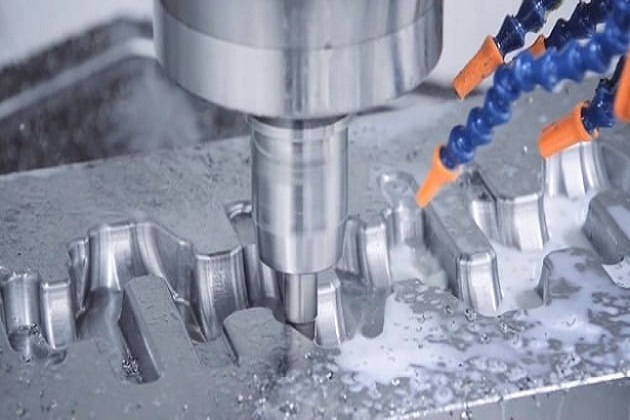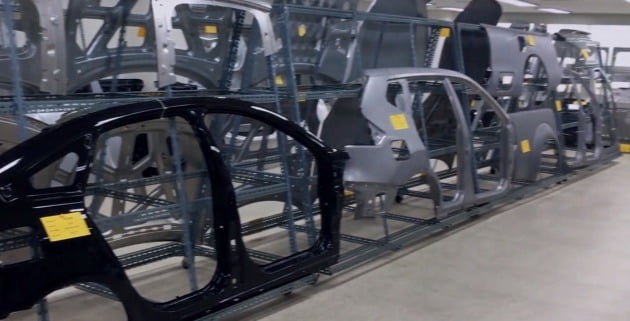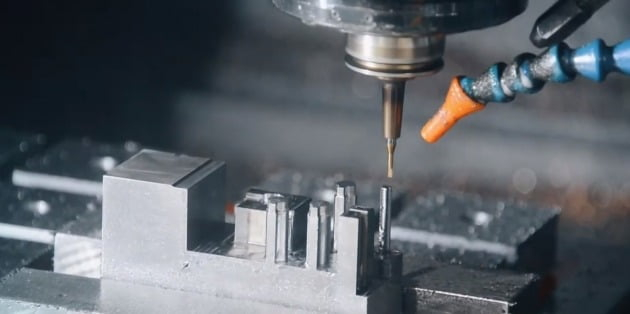Mold industry
S.Korean mold makers target global leadership with record exports
By Mar 16, 2021 (Gmt+09:00)
4
Min read
Most Read
Samsung shifts to emergency mode with 6-day work week for executives


CJ CheilJedang to sell feed, livestock unit for $1.4 bn


Samsung Electronics' key M&A man returns; big deals in the offing


Affinity to buy SK Rent-a-Car at $572 mn, more deals expected


Keppel REIT to sell Seoul-based prime office T Tower



South KoreaŌĆÖs die and mold industry reported another year of export growth last year, fueled by record-high volume to North America, and maintaining its position as the second-largest exporter in the global market for six straight years, following Germany.
Korea Die & Mold Industry Cooperative (KODMIC), the countryŌĆÖs industry association with more than 1,500 members, including top makers A-Tech Solution Co., Nara Mold & Die Co. and Jaeyoung Solutec Co., shared on Mar. 14 that exports of die and mold to more than 120 countries in 2020 totaled $2.88 billion, growing 1.7% from $2.83 billion in 2019.┬Ā
South KoreaŌĆÖs total industry size of die and mold last year, including both domestic business and exports, is estimated at 9 trillion won ($7.96 billion) according to KODMIC. The industry is mostly made up of smaller players with fewer than 50 employees, accounting for 98% of all companies.┬Ā
The cooperative highlighted that the industry was able to maintain growth last year despite the pandemic thanks to rapid sales growth in North America, with exports to the US rising sharply by 52.2% and to Mexico, the regional hub for auto manufacturing, by 42.9%.
Dies are specialized machine tools used in manufacturing industries to cut or form materials to a desired shape or profile, and mold are hollowed-out blocks that are filled with liquids or pliable substances such as plastic, glass, metal or ceramic materials.
Dies and molds are used to create the frames for mass production in almost all manufacturing industries, including automobiles, smartphones, semiconductors, shipbuilding and home appliances.
Some 41.9% of South KoreaŌĆÖs dies and molds produced are purchased by the global auto industry, namely major global automakers such as Tesla, Porsche, Mercedes-Benz, Toyota and Honda as well as Hyundai Motor Co. and Kia Corp.

Other major sources of demand for South Korean dies and molds include the home appliance sector (26.4%), household items (9.3%), telecoms (8.9%), semiconductors (4.5%) and office equipment (3.8%).
ŌĆ£Last year saw healthy growth in exports due to the increase in global sales of Hyundai and Kia vehicles, and also owing to the rising demand of Samsung and LG mobile and home appliance products in North America,ŌĆØ KODMIC Chairman Shin Yong-mun said in an interview with The Korea Economic Daily.

The US was last yearŌĆÖs top importer of Korean dies and molds at $387 million, 13.4% of total annual exports, followed by Japan, Vietnam, India, Mexico and China.
It is the first time that the US topped the list since the cooperative started recording export data in 1981. China and Japan were alternately at the top position over decades, while the US was only the fifth largest importer until 2019.
ESSENTIAL MANUFACTURING COMPONENTS
Die and mold parts are essential components in the manufacturing sector; they largely determine the design, product quality and production costs in manufacturing, as they are used in large quantities.
For instance, producing a typical car requires more than 20,000 die and mold parts to make its hood, roof, trunk, bumper, grille, headlights and steering wheel.
ŌĆ£Every part of the vehicle requires the molding process except for the seat. ThatŌĆÖs why we often hear that a countryŌĆÖs competitiveness in the manufacturing segment depends on its level of molding technology,ŌĆØ Shin added.
Likewise, the molding process is required to manufacture 700 components in a typical electronic display, 200 parts in a smartphone, and more than 80,000 parts of a large container ship.

CONTINUED SUCCESS ACROSS INDUSTRIES
Multiple Korean die and mold makers recently signed a three-year contract with FranceŌĆÖs Renault Group for the production of a range of vehicle models, including the Talisman, the Captur, the Megane, the Kangoo and the Master.
This is the first case of local makers signing a long-term contract with a global carmaker instead of individual short-term, order-based contracts.
Shin commented: ŌĆ£There were a number of such successes last year despite the pandemic, where Korean technology was highly recognized internationally.ŌĆØ
Another case that Shin emphasized was Poonglim PharmatechŌĆÖs low dead space (LDS) syringes for vaccination. The LDS syringes were developed domestically using Korean molding technology, thanks to SamsungŌĆÖs smart factory support offered to Poonglim.
Samsung, arguably possessing the worldŌĆÖs most advanced molding technology, was able to produce both the mold prototype as well as the syringe prototype in just four days, whereas a typical maker would have taken several months.
The chairman also remarked that ŌĆ£dies and mold are the only items within the mechanical manufacturing sector where South Korea maintains a trade surplus versus Japan. Japan is no more a competitor in this segment.ŌĆØ
The industryŌĆÖs next goal is to surpass Germany for global leadership. German products are known for their high accuracy with an error range of less than 0.05-0.1mm.
In order to strengthen South Korea's industry-wide competitiveness, KODMIC is hosting Intermold Korea 2021, held online from Mar. 16 to 22. Intermold is the worldŌĆÖs first international exhibition focusing on die and mold products.
Write to Dae-Kyu Ahn at powerzanic@hankyung.com
Daniel Cho edited this article.
More to Read
-

-

-
 Aerospace & DefenseInnospace, LIG Nex1 to co-work for space, defense business
Aerospace & DefenseInnospace, LIG Nex1 to co-work for space, defense businessApr 17, 2024 (Gmt+09:00)
-

-

Comment 0
LOG IN


